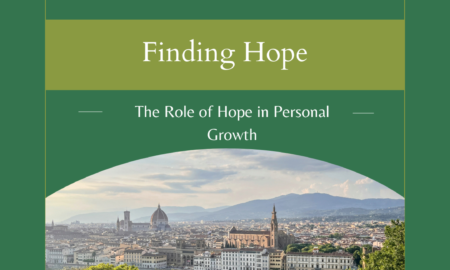Self-Confidence
Self-confidence is an individual’s capacity to trust in their own abilities, worth, judgements and power.
Someone with self-confidence believes in their own ability to successfully face daily challenges or demands, regardless of what may come up. They may be composed and self-aware. They will also have personal ideals and plans for our life, safe in the knowledge that they are able to achieve what they want.
What is Low Self-Confidence?
A lack of self-confidence may be a crippling trait that holds us back from achieving our goals. We may believe we don’t have the confidence to get what we want in life or to go after the things we desire.
You may be unhappy in your personal relationship, feel stuck in a job you don’t enjoy or are unable to make a significant change to your life. There may be things you want to do but something stops you. You may feel a struggle between what you want to do and the ability to do it.
Low self-confidence can impact on different areas of our life. Our love life, work life and our health can be affected to varying degrees.
Someone with low self-confidence may struggle with being assertive or social anxiety. They may also struggle with interpersonal skills and communicating with others. Things could result in a vicious circle. A lack of self-confidence in social situations could lead to awkward encounters or missed moments. This may then in turn result in a feeling of inferiority and failure. Someone’s drive to succeed may take a knock, their direction in life may become vague or feel untenable. Feelings of despair, anger and resentment may surface.
Sign of low self-confidence
If you are lacking in self-confidence you may be experiencing the following;
- Believing you are unsuccessful
- Struggling with motivation or determination
- Social anxiety and an avoidance of social situations
- Low self-worth
- Destructive or unhealthy personal relationships
- A feeling of “I’m Not OK, You Are OK”
Self-Confidence vs. Self-Esteem
Self-confidence and self-esteem are often used interchangeably. There is however, a difference between the two. Where self-confidence is used more in terms of how we feel about our abilities to do certain things in certain situations, self-esteem relates to our overall feelings about ourselves.
As an example, we may be able to give a presentation in front of a room full of people showing healthy self-confidence, but we may not feel our public speaking is actually any good. Our perception of ourselves in this situation shows low self-esteem but high self-confidence. The difference is highlighted via our feelings of self-worth. If we know we can get the job done, we have self-confidence but if we don’t value ourselves when we’re doing it, we have low self-esteem.
In terms of therapy it may be useful to explore what areas and feelings you have about yourself, your value and your abilities to better understand what is going on for you.
Self-confidence is the first requisite to great undertakings. Samuel Johnson
Working to Develop Greater Self-Confidence
Self-confidence may be on a spectrum and there may be certain situations in which we feel very confident and others not. We may notice the discrepancy and have a desire to be as confident on all areas of our life as we can.
Working to develop greater self-confidence can be beneficial in multiple areas of our life. We can reduce challenges in certain areas as our ability to overcome adversity increases and our general mental health is healthier and stronger.
The good news is that self-confidence can be learned and built on. Therapy to increase self-confidence will focus on supporting you to identify self-limiting beliefs and to recognise how they are holding you back. With understanding and a nurturing environment offering freedom to explore what’s going on for you, therapy can provide you with the stepping stones to help you move forward. We will work at your pace, setting realistic and obtainable goals that work for you.
If you would like to know more about how therapy can help you with low self-confidence, get in touch with Alana.

Book a Consultation
Frequently Asked Questions
The terms ‘Psychotherapy’ and ‘Counselling’ are often used interchangeably and essentially they are both characterised by a form of “talking therapy”. You will see many practitioners will use both terms when referring to themselves.
Fundamentally both psychotherapy and counselling have the same goal of providing relief to someone with some sort of psychological symptom or obstacles although there are some subtle differences.
‘Counselling’ is often used to describe a shorter-term process than psychotherapy. A goal in counselling is to enable someone to make better use of resources they may already have in place. Counselling often focuses on a specific issue, life event or experience or on a particular symptom.
‘Psychotherapy’ is often a longer process of treatment and focuses on facilitating the exploration and development of new resources for a person. In psychotherapy you will have the chance to look deeper into the root of your issues. You will have the chance to explore patterns of behaviour, thinking and feeling in your life at a greater depth that allow you to focus more on your way of being in the world.
Psychotherapy training is also a more rigorous and academic process.
Someone who may be in training to be a Psychotherapist may refer to themselves as a Psychotherapeutic Counsellor until they have completed certification to be known as a Psychotherapist.
I hope that my website has given you an overview of who I am and how I work and if you are interested in finding out more I would recommend an initial consultation to meet each other to see if it feels right for you when we are in the room together. We will probably be able to establish quite early on if I am the right person for you.
Choosing a therapist is a very individual choice and I recommend you take the time to meet at least a couple people with a view to having some thought about who you may work best with. I believe that each relationship is individual and unique and it is a privilege for me to get to know people I see and to support them on their therapeutic journey. Relationship is central to building a therapeutic alliance and working together, so trust your instinct to make a decision and start your own journey.
I look forward to meeting you!
Following our initial assessment, if you would like to start sessions together we will agree a day and time for your sessions. I will send you a standard therapy agreement that outlines my commitment to you and it details much of what I would have discussed in the assessment session. This includes details of my professional commitments and of the administrative aspects of our therapeutic relationship. We will both have a signed copy of this agreement.
Payment is due each session and I accept cash or BACS transfers. Any missed sessions with less than 48 hours notice will be payable on the following session.
If you want to work longer term I am also happy to work on monthly payments.
Self-Confidence Related Blog Posts

Finding Hope
Why Hope Matters on Difficult Days This morning the Happiful magazine newsletter landed in my inbox and the title of the newsletter was “It’s OK to look for hope”. It…

Improve Your Mental Strength
Ever wondered why some people seem to bounce back effortlessly from life's curveballs while others struggle to regain their footing? The secret lies in mental strength – that intangible power…
Ready to Make a Change? Book an Initial Consultation Today
If you have any questions at all about therapy or would like to make an appointment, get in touch. I will usually be able to respond to you within 24 hours.
